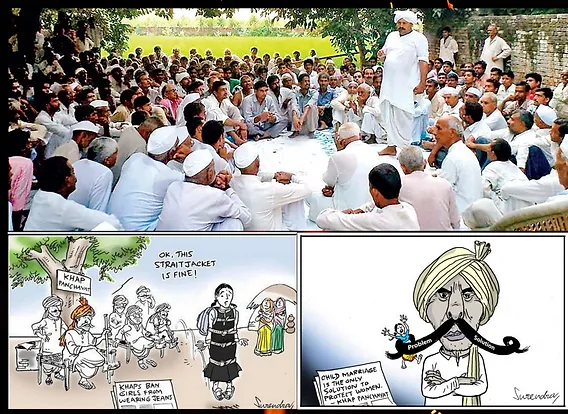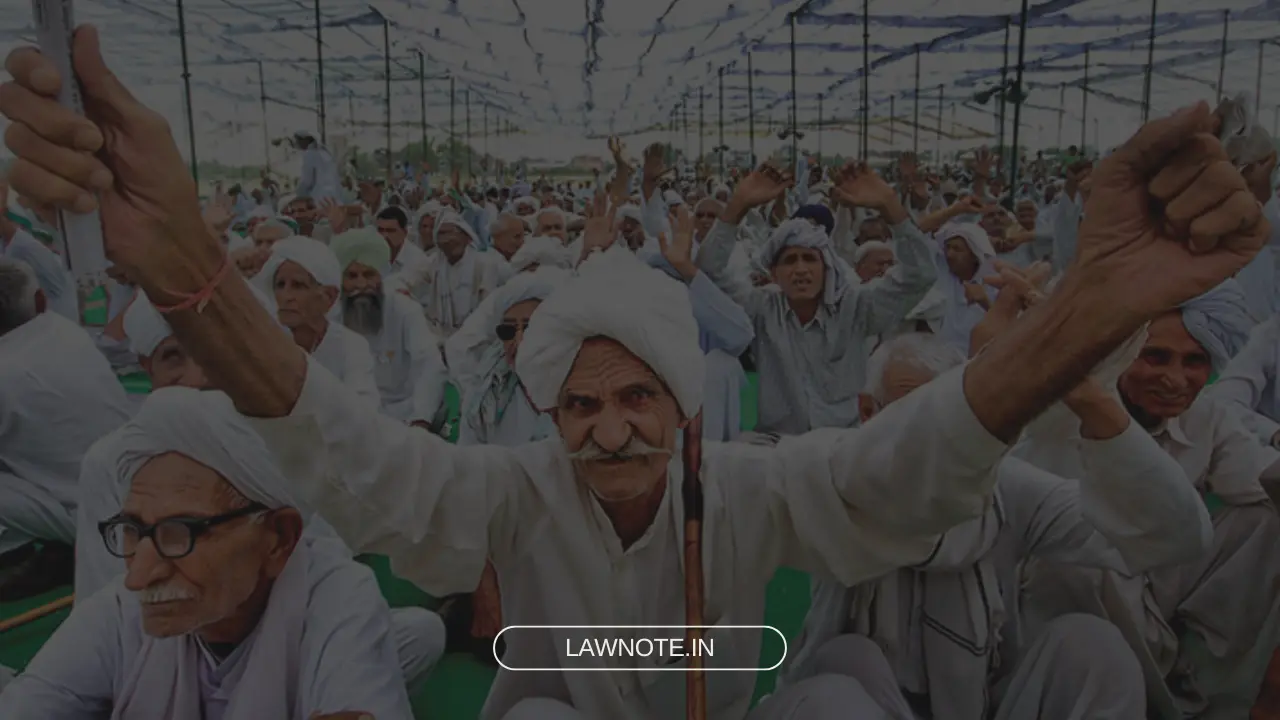Introduction
Khap Panchayats, though rooted in Indian traditions, pose significant challenges to constitutional rights and societal progress. They operate as informal councils enforcing rigid social norms, often at odds with the law. This article delves into their structure, controversies, and the need for reform to balance cultural heritage with modern constitutional ideals.
What Are Khap Panchayats?

Khap Panchayats are community councils based on lineage (gotra) or geographic proximity, prominent in states like Haryana and Uttar Pradesh. Unlike legally recognized Panchayati Raj Institutions (PRIs) under the 73rd Constitutional Amendment, Khap Panchayats lack formal legitimacy yet wield substantial influence. Their decisions often revolve around preserving “community honour” by regulating marriage, caste norms, and gender roles.
Also Read: Ajit Singh v State of Punjab
Structure and Functioning of Khap Panchayats
Composition and Jurisdiction
Dominated by senior male members, often from dominant castes like Jats. Their jurisdiction spans multiple villages, enabling regional influence beyond a single settlement.
Decision-Making and Authority
Operate through patriarchal leadership or consensual decision-making. Their rulings on social conduct and marriages are considered binding, with penalties for defiance ranging from ostracism to violence.
Role in Social Governance
Enforce intra-caste (endogamy) marriage while forbidding inter-caste or intra-gotra unions. Aim to preserve traditional norms, often clashing with evolving societal values.
Legal Controversies Surrounding Khap Panchayats
Conflict with Constitutional Rights
- Right to Personal Freedom
Fundamental liberties under Article 21, including the right to marry, are undermined. - Right to Equality
Khap-imposed caste-based restrictions violate Article 14’s guarantee of equality before the law. - Right to Life and Dignity
Honour killings, often sanctioned by Khaps, flagrantly breach Article 21.
Honour Killings and Khap Panchayats
Frequently linked to honour killings over defiance of marriage norms. High-profile cases like Manoj and Babli (2007) exposed the brutality of these practices. Despite Supreme Court interventions, societal pressures and political patronage perpetuate such crimes.
Judicial Stance on Khap Panchayats
Arumugam Servai v. State of Tamil Nadu (2011): Strong condemnation of Khap Panchayats for overstepping legal boundaries.
Lata Singh v. State of U.P. (2006): Reaffirmed the right of adults to choose their marital partners without external interference.
Supreme Court Directions: Ordered state protection for threatened couples and strict penalties for honour crimes.
Legislative Measures and Gaps
Existing Legal Framework
Indian Penal Code (IPC): Sections like 302 (murder) address honour killings but lack targeted provisions.
Special Marriage Act, 1954: Facilitates inter-caste marriages but requires reforms for better protection.
Proposed Reforms
Prohibition of Unlawful Assembly Bill (2011): Aimed to curb Khap-driven interference but remains unpassed. Amendments to the IPC and the Special Marriage Act could provide explicit legal deterrents.
Social Implications of Khap Panchayats
Patriarchal Control and Gender Discrimination
Women face disproportionate penalties, including restrictions on autonomy and dress. Upholds gender inequality in conservative rural communities.
Caste-Based Exclusion
Reinforces caste divisions, stalling efforts toward societal integration.
Impact on Youth and Social Mobility
Youth aspirations for modernity are stifled by traditionalist rulings.
Role of Law Enforcement and Political Patronage
Law Enforcement: Reluctance to act due to logistical challenges and local influence.
Political Patronage: Politicians often support Khap Panchayats to secure votes, undermining legal accountability.
Conclusion
Khap Panchayats embody a clash between tradition and constitutional values. While rooted in community governance, their actions often violate fundamental rights, perpetuating patriarchal and caste-based discrimination.
The Way Forward
Legal Reforms: Implement robust laws to penalize honour crimes and Khap interference.
Community Awareness: Educate rural populations on constitutional rights.
Political Accountability: Reduce political support for extra-legal entities.
To uphold justice and equality, India must prioritize dismantling the influence of Khap Panchayats and empowering individuals to exercise their rights freely.
FAQs
1. Are Khap Panchayats legal?
No, Khap Panchayats are not legally recognized and operate outside the framework of India’s Constitution.
2. What are the consequences of defying a Khap ruling?
Defiance can lead to social ostracism, violence, or honour crimes, depending on the community’s response.
3. How can honour crimes be addressed effectively?
By enforcing strict legal measures, raising awareness about individual rights, and ensuring accountability for perpetrators.
Reference: indiatoday.in
